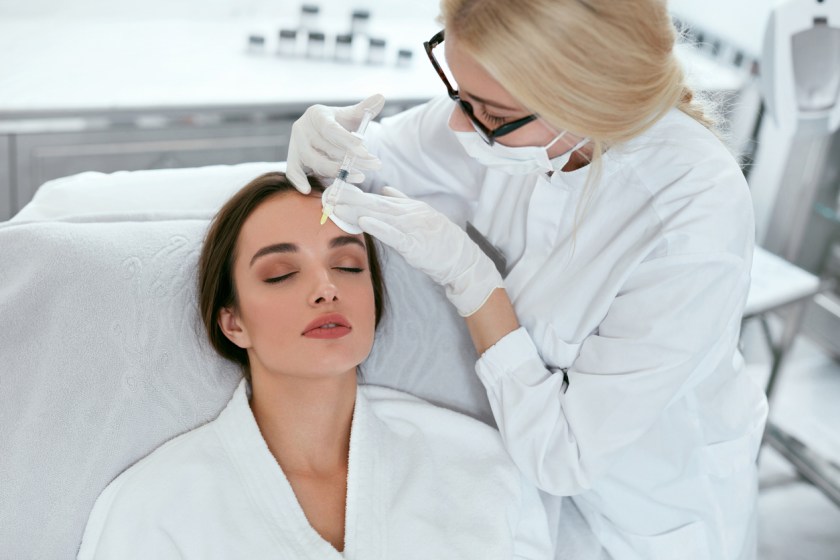Queensland Releases Updates To S4 Cosmetic Guidelines For Practitioners And Nurses.

While these changes aren’t entirely new, they reflect a recent shift in the interpretation of existing guidelines.
An updated set of regulatory guidelines published by Queensland Health in late 2024 came into focus over the weekend, reigniting the conversation around aesthetic regulations which practitioners have faced over the past few years.
This five-page document outlines the regulations regarding who is authorised to prescribe and administer S4 cosmetic injectables within beauty and cosmetic services further emphasising compliance, patient safety and adherence for Queensland practitioners.
While some guidance remains unchanged regarding who can prescribe and administer S4 cosmetic injectables, new complexities have been introduced, including stricter regulations on purchasing, the prohibition of standing orders, and enhanced infection control requirements.
Buying S4 Cosmetic Injectables
Under the new guidelines, it is now unlawful for registered nurses, enrolled nurses, admin staff or other unauthorised persons to buy cosmetic injectables for a beauty treatment/cosmetic business, even ‘on behalf of’ or ‘with the approval of’ a doctor or nurse practitioner.
Individuals are not permitted to place purchase orders for S4 medicines with wholesalers or pharmacists, including submitting electronic orders under a medical practitioner’s or nurse practitioner’s name or account. Furthermore, doctors and nurse practitioners not directly affiliated with a beauty or cosmetic business are also prohibited from purchasing these medicines.
If an order is placed electronically, the practitioner or nurse practitioner must use a unique identifier in the purchase order. For example, where the buyer has a unique username or account number set up with the supplier, this can be shown on the purchase order when the buyer uses a secure ordering website. It remains uncertain whether suppliers have systems in place to support this requirement.
Additionally, the stock must be delivered directly to the authorised buyer at the clinic where the treatments are being performed. Practitioners are not permitted to purchase stock for a practice where they do not actively perform treatments, this includes telehealth.
Further to this, prescriptions now have strict requirements for both administration and dispensing. Practitioners without a medical practitioner or nurse practitioner (authorised prescriber) on-site must have a prescription written to dispense the product at a pharmacy. Once dispensed, the product can be taken back to the clinic and administered by a registered nurse, following the instructions provided.
Storage of S4 medicines including cosmetic injectables
In addition to the purchasing changes, updates have been made regarding the storage of S4 medications in shared clinics. A designated medicine store manager and medicine store establisher must be appointed, with the person in charge of the clinic holding overall accountability for compliance. The nominated team member must be someone who is authorised to possess and administer the medicines such as a medical practitioner, nurse practitioner or registered nurse.
Standing orders for S4 cosmetic injectables
Standing orders cannot be used for the administration of cosmetic injectables to patients by registered nurses in a beauty treatment/cosmetic business. In other words, administered or given as a treatment dose at a stated place or in stated circumstances. Under the MPMR, the use of a standing order is limited to certain circumstances, including at an institution such as an aged care facility, hospital, prison or detention centre.
Infection control
Persons who operate a beauty treatment/cosmetic business have obligations under the Public Health (Infection Control for Personal Appearance Services) Act 2003 to minimise the risk of infection. Where cosmetic injectables are provided as a service from a healthcare facility, operators are required to comply with Chapter 4 of the Public Health Act 2005, including having an infection control management plan.
Learn more with Fresh Clinics
As leaders in the field dedicated to supporting compliance within the community, Fresh Clinics is actively reviewing these changes to understand their implications for Queensland-based clinics and nurses.
To help navigate these developments, Dr John Holbrook and Dr John Delaney will host a webinar to share preliminary insights from Fresh Clinics’ legal team.
While they are still working to fully understand the changes, this session is intended to provide early feedback and support to Fresh Clinics members and anyone in the industry seeking assistance.
Please note that the information shared will be preliminary as Fresh Clinics continues to gather more feedback.
We encourage you to RSVP using the link – https://lu.ma/bg9pmik7
Read the updates from Queensland Health here.
The post Queensland Releases Updates To S4 Cosmetic Guidelines For Practitioners And Nurses. appeared first on SPA+CLINIC.
